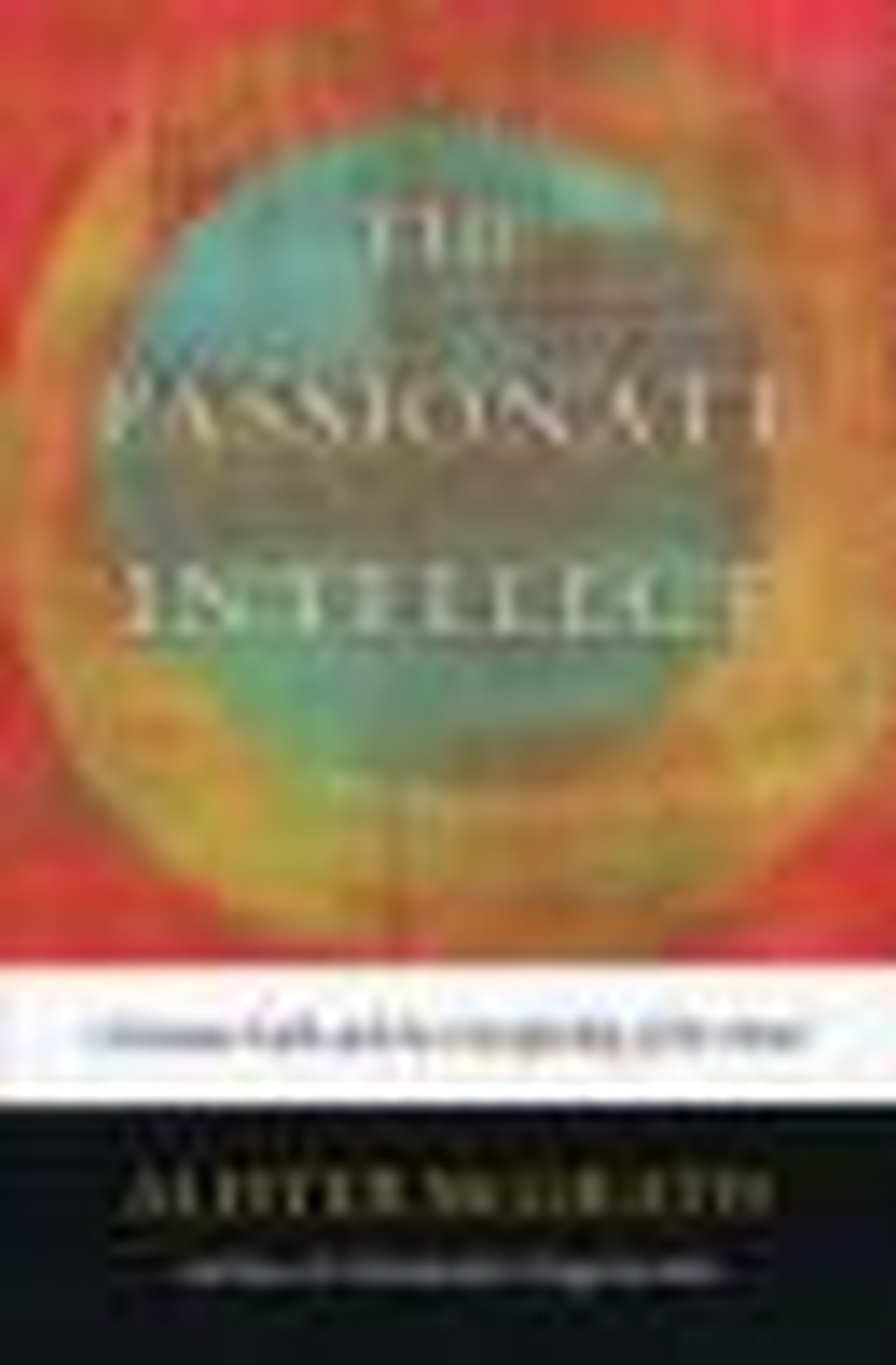Think Theologically: A Review of Alister McGrath's The Passionate Intellect

McGrath, A. (2010). The Passionate Intellect: Christian Faith and the Discipleship of the Mind. Downers Grove: IVP Books. 210 pp.
Alister McGrath's The Passionate Intellect provides an excellent introduction for believers who want to know more about how theology both impacts Christian living and provides responses to contemporary objections against Christianity. McGrath (b. 1953) is a former professor of historical theology at Oxford University and now president of the Oxford Center for Christian Apologetics.
SUMMARY
The first half of the book demonstrates two key concepts. First: theology is not simply an academic enterprise, but a devotional one as well. Second: the ability to think theologically prepares believers for engagement with non-Christian culture. Theology is thus an intellectual discipline with highly practical consequences. And these consequences benefit both those who embrace Christianity and those who question it. The second part of the book then applies this claim by considering the relationship between faith and science, particularly by exploring Darwinian evolution (a lightning rod concept in Evangelical life). This is followed by a response to 21st-century criticisms of faith.
Chapters one and two discuss "Mere Theology" (a concept borrowed from the title of C. S. Lewis' Mere Christianity). And chapters three, four, and five then borrow from George Herbert, C. S. Lewis, and Martin Luther to demonstrate how theology works practically - transforming our vision of reality, including our understanding of nature and our ability to reconcile the concept of suffering in a world overseen by a supposedly good and powerful God. The concluding chapter of part one (chapter six) then begins the practical applications of part two, introducing readers to the role of theology in apologetics.
McGrath introduces part two with the story of his own conversion away from an atheist committed to philosophical materialism[1] as the only intellectually responsible worldview. So what challenged the supremacy of McGrath's materialist worldview? Contrary to what some readers might expect, it was not a growing familiarity with scripture (although that did come later), instead it was an introduction to the philosophy of science.[2] McGrath explained that while preparing for his studies at Oxford University, he stumbled across a small section of books in his school's library, covered with dust: "This History and Philosophy of Science." This section of often-ignored books introduced him to Thomas Kuhn and Karl Popper, and their questions about the limits of scientific knowledge. After reading about the philosophy of science, he realized that the natural world was "conceptually malleable" (p. 105), and could be interpreted in a variety of different ways. Therefore, one could be true to the scientific method and yet hold a variety of worldviews. He also discovered that Christian faith was "intellectually capacious," meaning "not merely was it materially and evidentially well-grounded, it was also enabling and enriching." Additionally, "the Christian faith both made sense in itself and of things as a whole" (p. 106).
This newfound respect for Christianity developed alongside an interest in what McGrath called "the big picture" - "the overall patterns of ordering discerned within the universe" (p. 108). One such pattern included the universe's apparent "fine tuning" for intelligent life. Though such fine-tuning was not proof for God per se, it was an example of how reality was consistent with a Christian worldview.
Chapters eight and nine provide two case studies relevant to Christian apologetics - Darwin's Origin of Species, and St. Augustine's The Literal Meaning of Genesis. Chapter eight then considers Charles Darwin's Origin of Species. The chapter goes beyond merely the facts of Darwin's work. McGrath considers the larger question of how one develops and then confirms a hypothesis. For example, humans must make a number of decisions with neither all the facts nor total proof. McGrath cites William James' argument that humans need "working hypotheses" because much of life lies "beyond total proof" (p. 120). While Christian faith may lack the benefit of so-called, "total proof." Darwin's evolutionary model is equally lacking.
Chapter nine takes readers from Darwin's 19th century back to St. Augustine's 4th century, and demonstrates how Biblical interpretation can be true both to scripture and to the facts of the natural world without simply accommodating a non-Christian worldview. McGrath examines Augustine's The Literal Meaning of Genesis, especially Augustine's explanation that God did not create a static world but one with "the capacity to develop," like a seed (p. 140). McGrath also cites Augustine's warning against tying Biblical interpretation to one particular scientific theory. Augustine wisely realized that by tying Biblical interpretation to a specific theory, Christians would inadvertently challenge the veracity of scripture when that scientific theory was challenged.
Chapters ten and eleven focus on the new atheism. First McGrath answers one of the new atheism's chief charges against religion, and then he considers the Enlightenment's foundations for the new atheism. Chapter ten answers the popular atheist charge that religion promotes violence, using counter-evidence of atheist violence against religion. Violence by adherents to both religious and atheist worldviews simply proves the fallibility of human nature, rather than the superiority of one worldview over another. Yes, religious groups have been responsible for violence, but they have also been responsible for great good.
The final chapter (eleven) returns to McGrath's forte: history. Here McGrath considers the intellectual roots of the new atheism: the Enlightenment. He highlights the term "humanism" - explaining that its original sense was neither secular nor overtly anti-religious, but rather an emphasis on classical Greco-Roman culture and its appreciation for human excellences. The enlightenment especially prized reason, and such an appreciation for reason is not anti-Christian. Where the Enlightenment began to challenge Christian thinking was its emphasis that reason alone provided valid knowledge (thus excluding any possibility for revelation). McGrath concludes the chapter by demonstrating the failures of a worldview based on reason alone, and he chronicles the recent reemergence of appreciating the transcendent.
EVALUATION
McGrath's interest in historical theology is the book's greatest strength. He provides numerous examples from Church history that illustrate how a historical understanding of Christianity can help believers with both hermeneutics and apologetics - providing insight into how believers have interpreted scripture and answered objections to Christian faith.
The book can potentially benefit a variety of Christian readers. For readers who have not heard of Christian thinkers like Polkinghorne[3] or Christian poets like Herbert,[4] The Passionate Intellect will provide a helpful introduction. For readers who are familiar with the objections of popular atheists like Christopher Hitchens and Richard Dawkins (nicknamed "Darwin's Rottweiler") the book will provide helpful responses.
As a fan of C. S. Lewis, I was delighted to see abundant references to Lewis' work, but I was also disappointed to note that McGrath borrowed some ideas from Lewis without citing the source. One egregious illustration of this can be found in his discussion of illustrating theology as a map (pp. 22ff.). I'm not about to accuse McGrath of plagiarism, but I do find fault with him for not overtly explaining to his readers Lewis' use of this same illustration in Mere Christianity 4.1. As an introductory text to Christian thinking and apologetics, the proper citation of helpful concepts is especially appropriate.
Another curious omission is the larger context of Darwin's role in the development of evolutionary theory. Though McGrath does not explain this, readers should note that the concept of evolution pre-dated Charles Darwin's work. Darwin's contribution to the theory was his explanation of how evolution might work through natural selection. I also wish McGrath would have clearly explained that the anecdote of Darwin's deathbed reconversion to orthodox Christianity is false.
Future editions of the book would benefit from some sort of study guide for group discussion. Although apologetics will not likely be the purview of most adult small groups, the addition of such a study guide would encourage small group study. For college student groups, this really should become part of their curriculum, especially for those college freshmen who have never benefited from a philosophy course during high school.
If you are a believer who is interested in the discipleship of the mind, you really should spend some time with McGrath's large body of work, including this book.[5] Although this book will be mostly repetition for those who have studied historical apologetics, it does summarize a body of information that took me years to study on my own. I especially recommend it for anyone who works with university students.
[1] The belief that only the physical world is real, and the supernatural does not exist.
[2] Readers who would like to know about the philosophy of science and its implications for both Christian and scientific thinking should check out Mars Hill Audio Journal 104 and its interview with James Le Fanu (www.marshillaudio.org).
[3] John Polkinghorne (b. October 16, 1930) earned a MA in Mathematics and a PhD in Physics. He is also an ordained Anglican priest who left his teaching position as a professor of Mathematics at Cambridge in order to enter the Anglican priesthood. He continues to write a number of books that consider the relationship between science and religion, and he was awarded the Templeton prize in 2002 for his combined work in Theology and Science.
[4] George Herbert (1593 - 1633) was a welsh poet and Anglican priest whose metaphysical poetry compared the common with the spiritual. He also both wrote poems that later became hymns, like "Let All the World in Every Corner Sing," and he published contemporary proverbs, such as "his bark is worse than his bite." Although I am a fan of John Donne's metaphysical poetry, I must confess to my chagrin that I had never hear of Herbert before - perhaps I slept through that bit of my freshman literature course at Oklahoma Baptist University?)
[5] Those who have not read anything from McGrath might consider beginning with his 1998 study guide on the Apostle's Creed, I Believe: Exploring the Apostle's Creed.
Stanley J. Ward serves as the Biblical Worldview Director at The Brook Hill School (www.brookhill.org) and frequently speaks at conferences (www.stanleyjward.com). He is also a PhD candidate and napkin theologian (www.napkinvideo.com).
Publication date: January 17, 2010
Originally published January 13, 2011.







